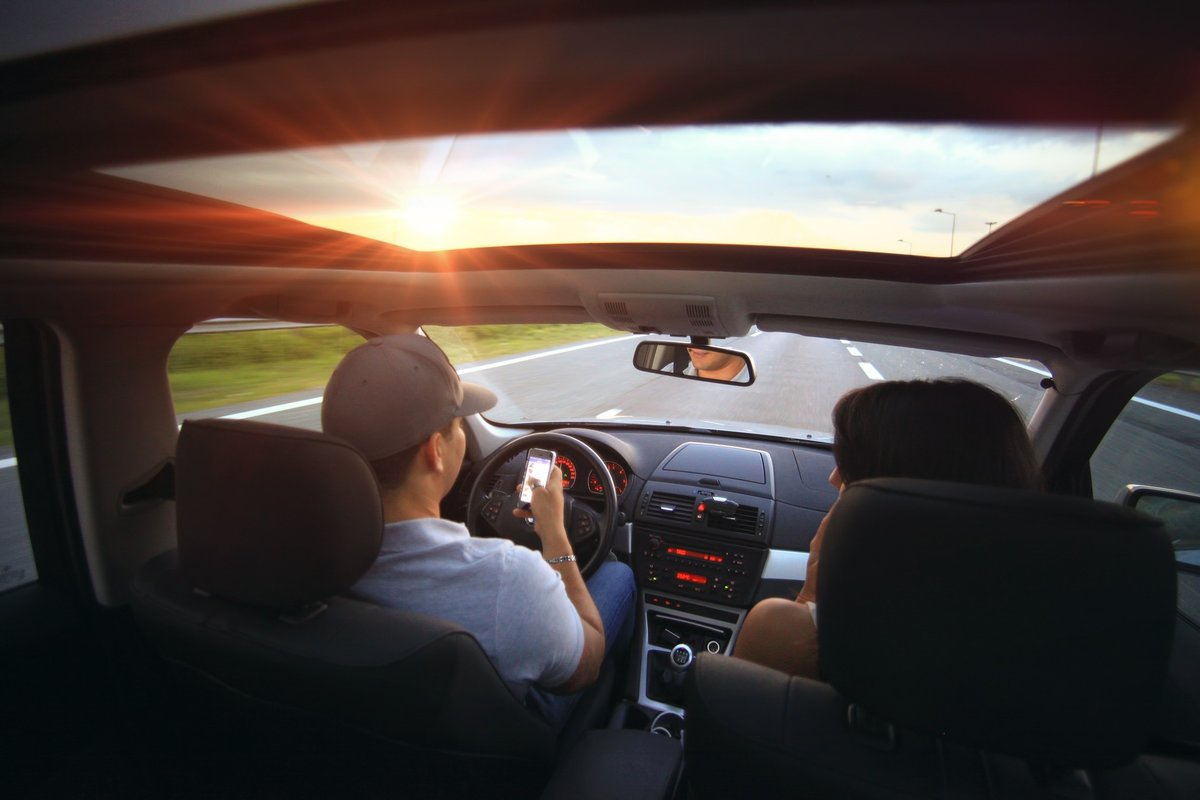
Dangers of Multitasking Behind the Wheel
When was the last time you talked on your cell phone, ate behind the wheel or quickly checked your notifications? For most people, the answer is "this morning." Many drivers have made it a habit, putting themselves and others at risk - and possibly breaking the law.
The National Highway Traffic Safety Administration (NHTSA) claims that driver inattention is the leading contributing factor in most crashes or near-miss accidents in the United States. Of all crashes, over 90 percent involve driver inattention within a three-second window of the incident. The moral of the story: When motorists change radio stations, try to read maps or talk on cell phones, they are putting themselves and others at risk.
Dangers of Multi-tasking at the Wheel
While there may be little you can do to control another person’s driving, you can certainly control your own distractions. To minimize your risks while driving, avoid:
- Talking on a cell phone, taking photos or texting
- Touching up makeup or hair in the rearview mirror
- Tending to smoking materials
- Adjusting the radio
- Eating
- Reading directions or operating a GPS
- Removing a jacket or sweater while driving
How Texting is Unique
The danger you’ll hear about most often is texting while driving (some people will even have the nerve to post on social media using #whiledriving!). Texting requires a motorist’s full attention, which obviously inhibits attention to the road. This concern is by no means limited to everyday drivers; inattention due to texting has caused many occupational drivers to be involved in deadly roadway crashes. Consider the following instances:
- A Boston trolley driver missed a red light while texting his girlfriend and smashed into another trolley. This accident injured 50 people.
- A Florida truck driver killed two young women when he hit their vehicle because he was texting.
- An attorney in Nevada rolled his company-issued SUV because he failed to pay attention due to texting.
Texting is a prevalent cause of roadway crashes because full driver attention is crucial, and it is virtually impossible to watch the road and text simultaneously. Do you want drivers around you on the road to text while at the wheel?
It’s Against the Law
Many states have laws outlawing the use of cell phones and texting while driving. To avoid a ticket and a potentially dangerous accident, do not use your cell phone in any capacity while driving. If you must make a phone call or text, pull off the road safely and then do so. No message is more important than saving someone’s life. To learn more about your state’s law click here.
Staying safe behind the wheel is simple. The two best strategies to beat auto accidents due to driver distraction while driving are:
- Avoid any activity that diverts your full attention from the road
- Drive defensively
Defensive Driving
In addition to avoiding distractions, give driving your full attention by driving defensively to minimize your risk of an auto accident. Driving defensively means being aware of the movement of drivers around you and making adjustments to your driving accordingly.
Allowing yourself to become distracted while driving can lead to dangerous, and even fatal, consequences. Be a responsible motorist and make paying attention to the road your number one priority when you’re behind the wheel.
REQUEST A CAR INSURACE QUOTE or call us today at 518-384-1100
April is Distracted Driving Awareness Month! Are you driving under the influence of your phone? Take this quiz from Travelers Insruance, and then make the decision this month to reduce your driving distractions and try to eliminate or cut back on at least one of these risky habits:
- Do not talk on your cell phone or use the text messaging feature.
- If you absolutely must conduct a conversation use a hands-free device and speed dial.
- Never touch up your makeup or hair in the rearview mirror.
- Limit your conversations with passengers and ask them to keep their voices down so you can concentrate.
- Do not smoke while you are driving, as you will probably pay more attention to not burning yourself or putting out the cigarette than driving safely.
- Only adjust the radio or music player when you are completely stopped.
- Never allow animals to sit on your lap while driving.
- Do not eat or drink while driving.
- Avoid reading maps or directions. Instead, pull into a parking lot to get your bearings and determine where you need to go next to reach your final destination. Program your GPS or directional apps before you begin driving.
- Do not take notes or search for phone numbers.
- Never use a cell phone (even with a hands-free device) in bad weather, work zones or heavy traffic.


